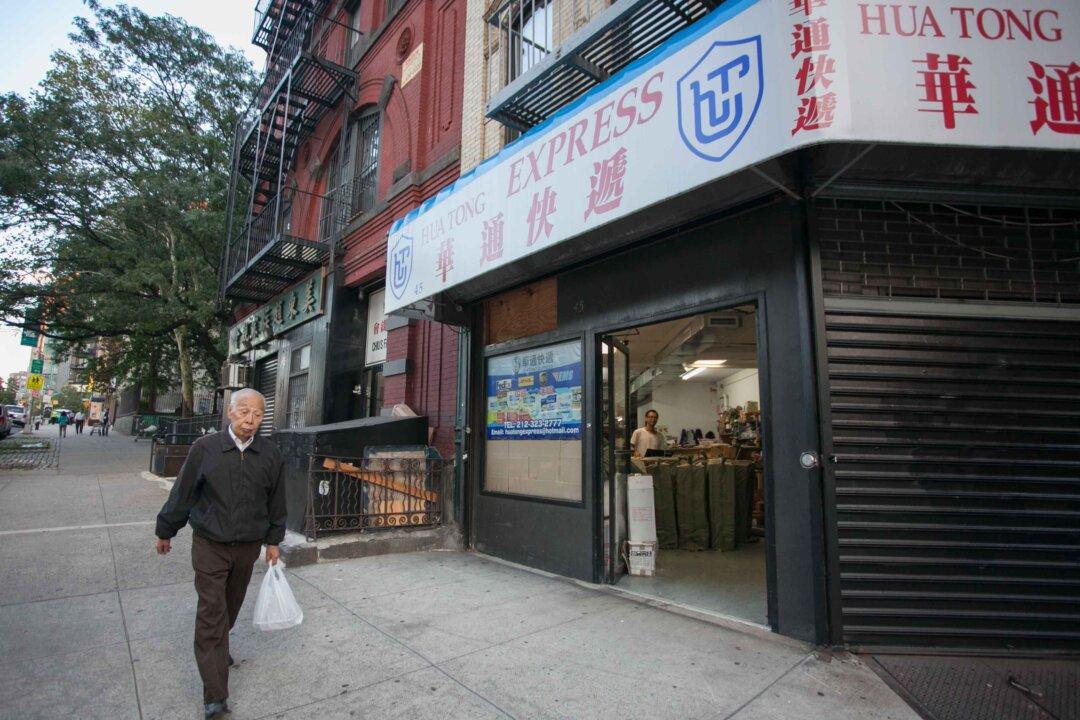NEW YORK—The throughfare in Flushing, Queens, is replete with the kind of shops one expects to see in overseas Chinese communities—restaurants, groceries, bubble tea cafes, more restaurants, and herbal apothecaries—but the past half-decade has seen a new mainstay amongst the crammed storefronts of Main Street: milk powder and infant formula delivery boutiques.
At JK Express, a delivery boutique that focuses on jewelry and infant formula, a clerk said that the store easily sells more than a hundred cans of infant formula per day. Most of the cans are between one and one-and-a-half pounds, and there are dozens of similar shops within a half-mile radius.
An uninformed visitor to the neighborhood might surmise that Chinese Americans in New York City had collectively caught baby fever, but only a tiny fraction of the cans of Enfamil and Similac sold there will ever be consumed in New York; most will be packed into air cargo, destined for mainland China.
China’s domestic milk and infant formula industry saw an exodus of its customers after a 2008 scandal, where at least six infants died and 13,000 children were hospitalized from drinking milk products containing melamine. It was later found that unscrupulous manufacturers added the hazardous chemical to boost the apparent protein count of their products.






